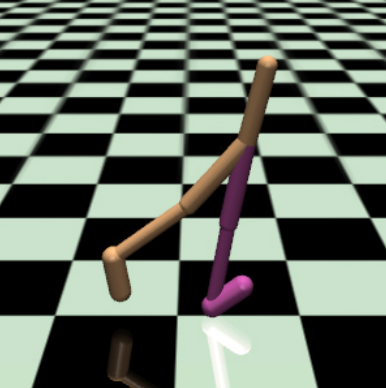- Conditional Generation and Style Transfer of Molecules
The development of a new medicine takes typically over 12 years or even longer . Navigating in such space to find the molecules with the desired properties is extremely hard as the chemical space is discrete and small changes in a molecule can change radically its properties. Instead of treating molecule design as a search algorithm ...
Read more - Outdoor positioning for the IoT world
How can I get an estimate of my position using a mobile device? The answer to this question would be quite complex a few decades ago. On the other hand, the spontaneous answer of most people nowadays would be “using the GPS on my phone” (or on some other mobile device). The use of GPS and other satellite systems, such as the European Galileo, the Russian GLONASS, or China’s BeiDou, have familiarized the broad public with the concept of outdoor positioning, which is often considered a solved problem. During the last few years though, the emergence of Internet of Things (IoT) technologies is bringing to the market and to our daily lives a plethora of small, low power devices. These devices ...
Read more - Lifelong Generative Modeling
The case for lifelong learning Lifelong learning (also known as continual learning) is the problem of learning multiple consecutive tasks in a sequential manner where knowledge gained from previous tasks is retained and used for future learning . ...
Read more - Sample-Efficient Imitation Learning via Generative Adversarial Nets

Generative Adversarial Imitation Learning (GAIL) . Albeit successful at generating behaviours similar to those demonstrated to the agent, GAIL suffers from a high sample complexity in the number of interactions it has to carry out in the environment in order to achieve satisfactory performance. We dramatically shrink the amount of interactions with the environment necessary to learn well-behaved imitation policies, by up to several orders of magnitude. Our framework, operating in the model-free regime, exhibits a significant increase in sample-efficiency over previous methods by simultaneously a) learning a self-tuned adversarially-trained surrogate reward and b) leveraging an off-policy actor-critic architecture. We ...
Read more
-
Archives
- January 2024
- December 2023
- September 2023
- June 2023
- April 2023
- March 2023
- January 2023
- December 2022
- November 2022
- October 2022
- August 2022
- June 2022
- May 2022
- April 2022
- February 2022
- December 2021
- September 2021
- August 2021
- April 2021
- March 2021
- February 2021
- December 2020
- November 2020
- October 2020
- September 2020
- August 2020
- July 2020
- May 2020
- February 2020
- January 2020
- December 2019
- November 2019
- October 2019
- September 2019
- August 2019
- July 2019
- May 2019
- April 2019
- November 2018
- October 2018
- August 2018
- June 2018
- May 2018
- February 2018
- January 2018
- November 2017
-
Meta